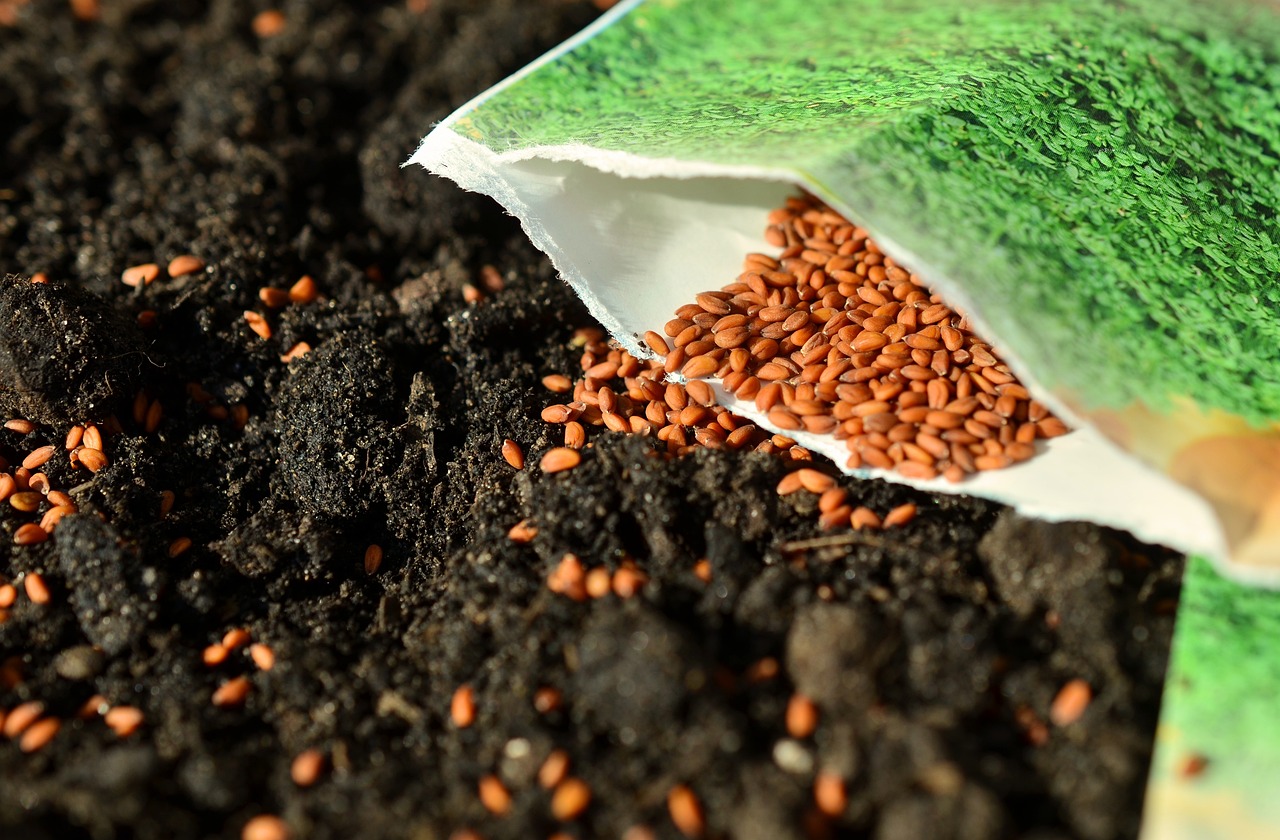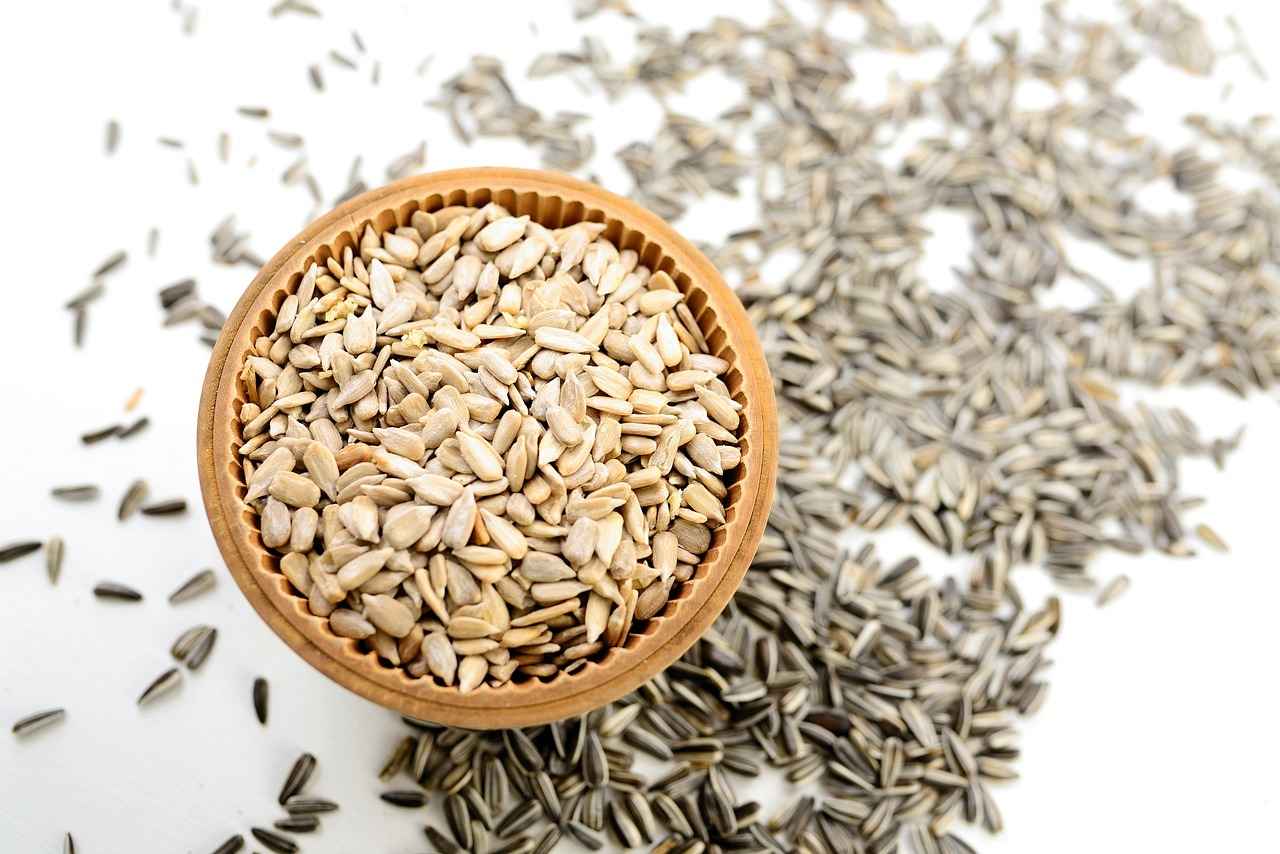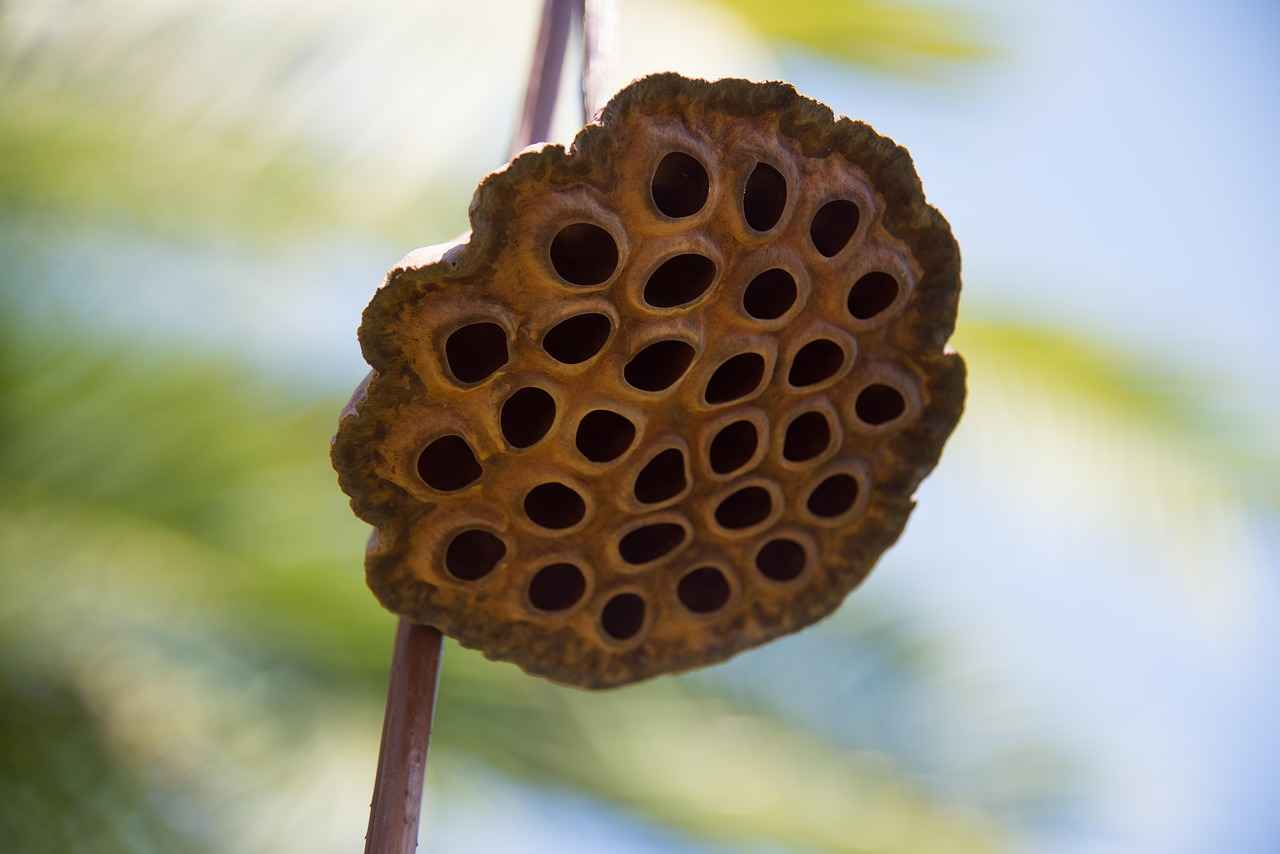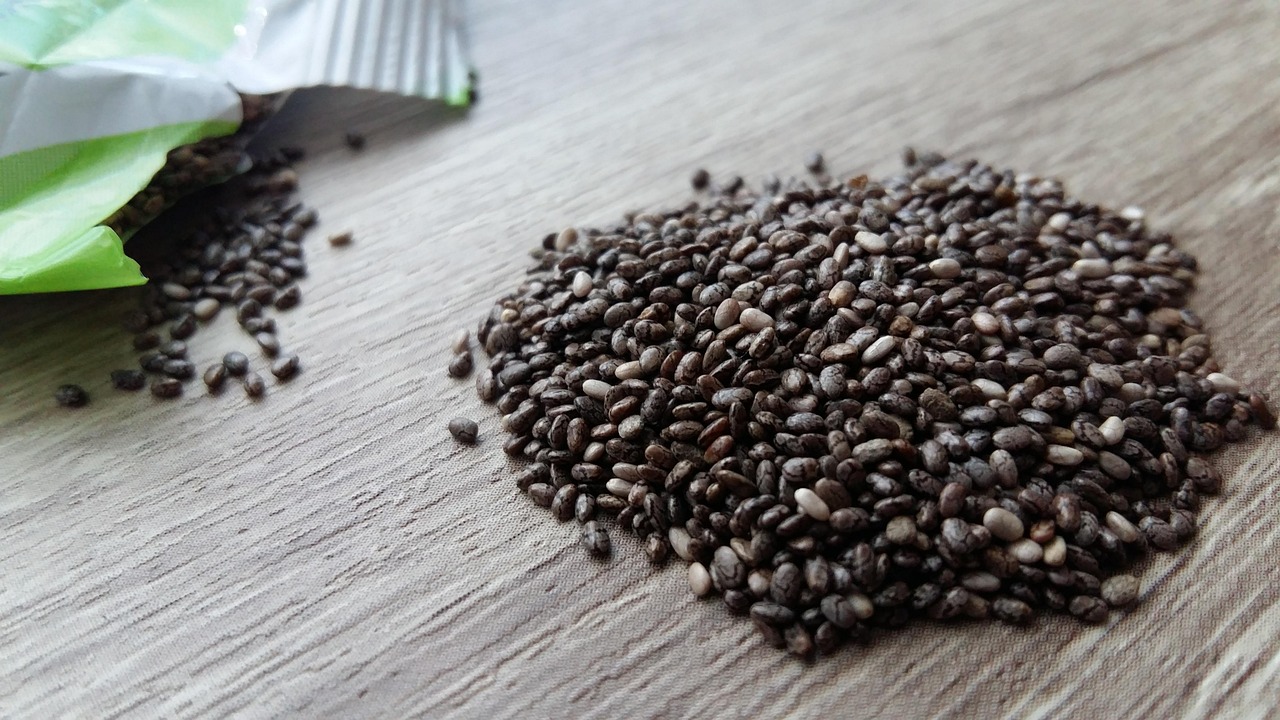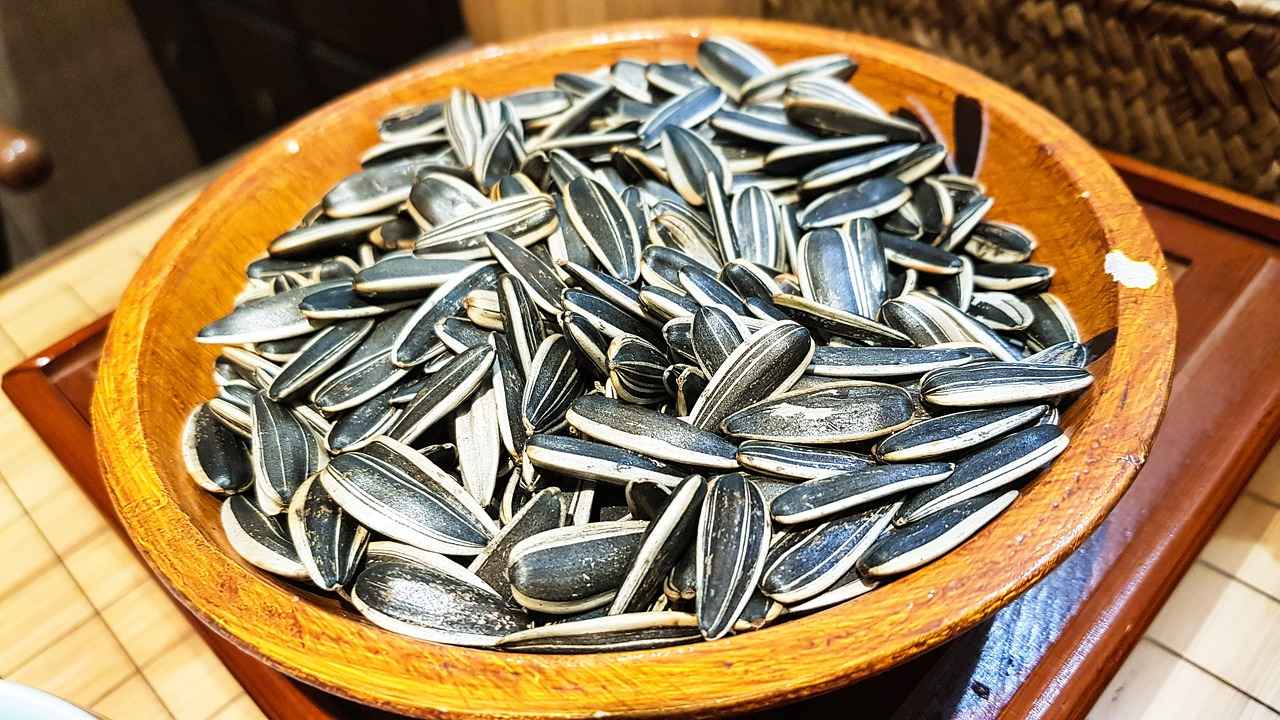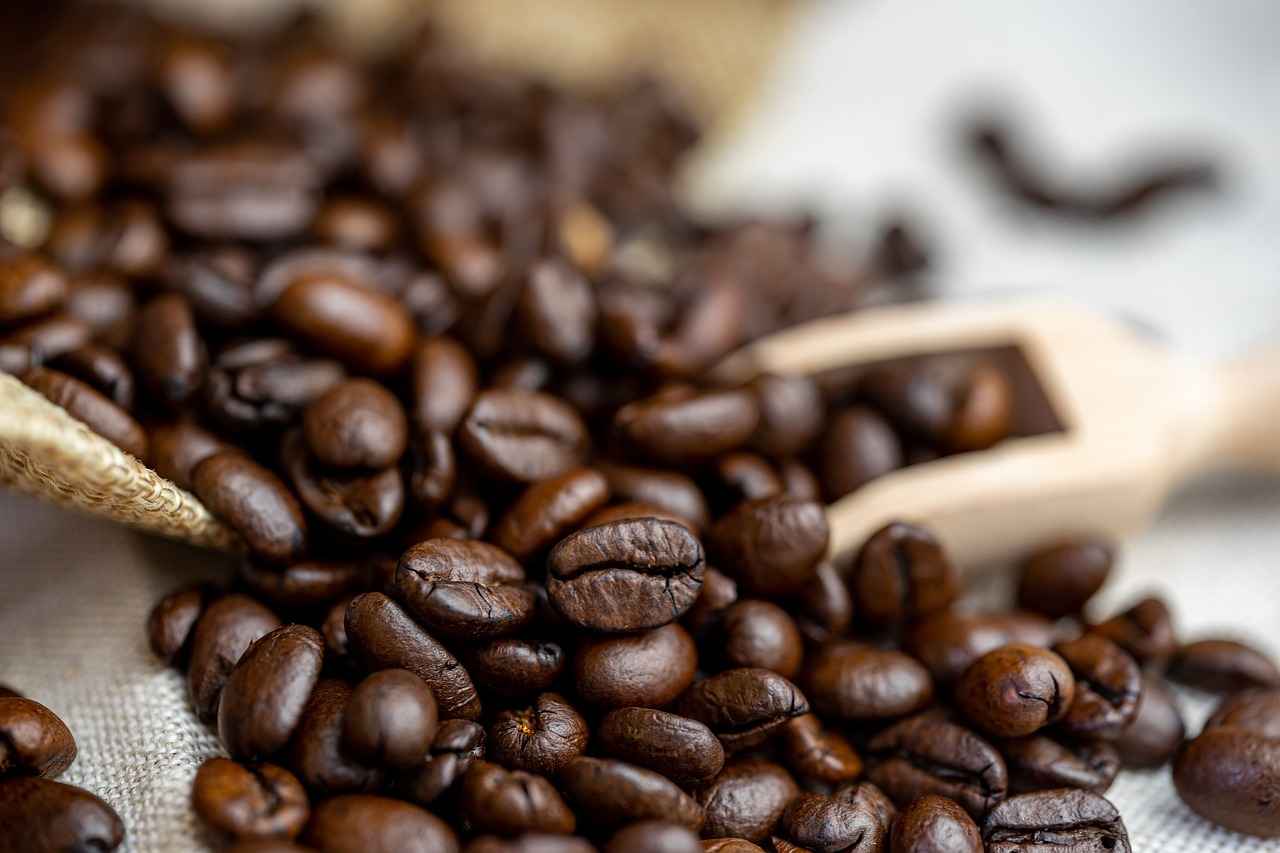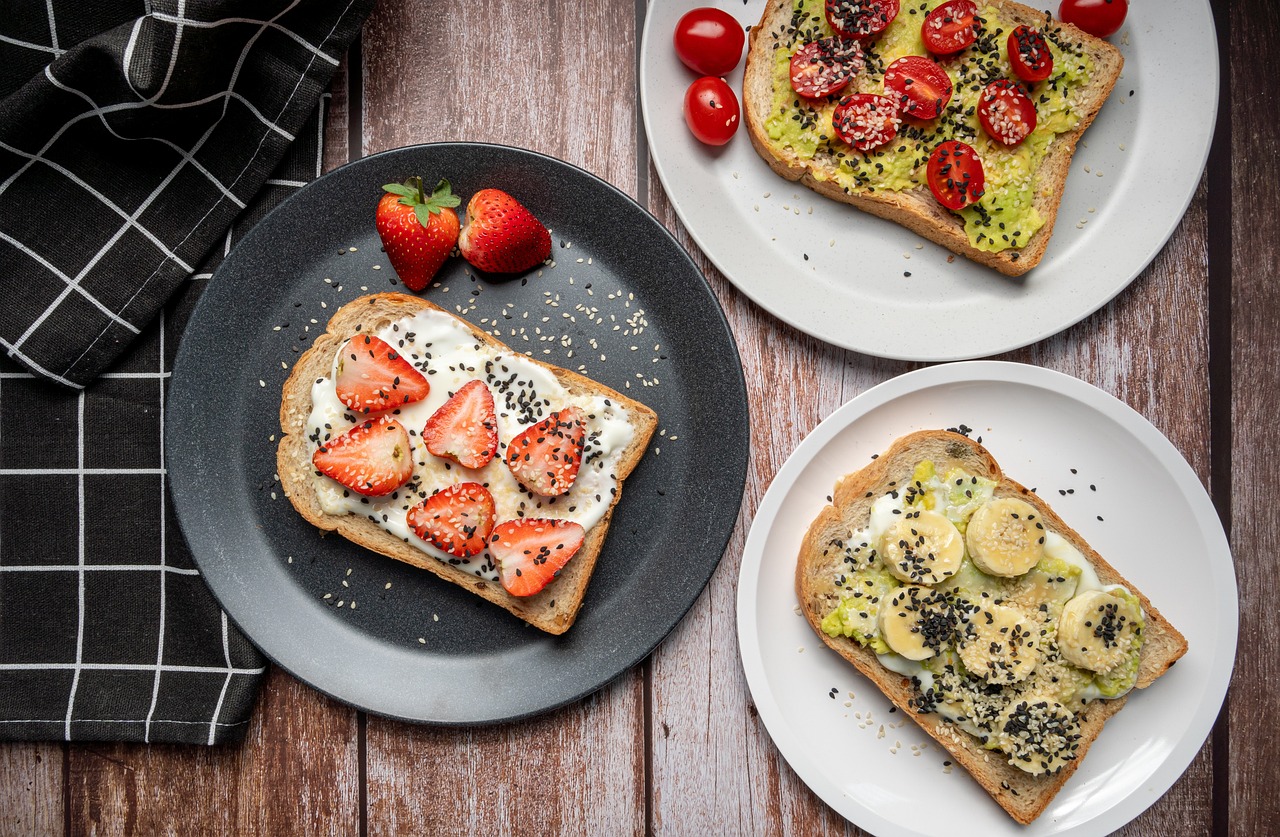Chia seeds have gained immense popularity in recent years, and it is no surprise that they are often hailed as a nutritional powerhouse. Among their many benefits, the protein content stands out, making them an excellent choice for those seeking to enhance their diets with plant-based protein. This article delves into the protein content of chia seeds, their various health benefits, and practical ways to incorporate them into your daily meals.
Chia seeds are a remarkable source of protein, especially for a plant-based food. A single tablespoon (approximately 28 grams) contains about 2 grams of protein. This makes them a valuable addition to vegetarian and vegan diets, where protein sources can sometimes be limited.
Chia seeds are often labeled as a superfood due to their rich nutrient profile. They are not only high in protein but also packed with omega-3 fatty acids, dietary fiber, antioxidants, and essential minerals such as calcium and magnesium. This combination of nutrients supports overall health and wellness, making chia seeds a fantastic choice for anyone looking to improve their diet.
When compared to other protein sources, chia seeds shine due to their plant-based nature. Unlike many animal proteins, chia seeds provide a complete amino acid profile, which is crucial for muscle repair and growth. This makes them an excellent option for athletes and fitness enthusiasts.
Understanding the differences between plant-based and animal-based proteins is essential for making informed dietary choices. While animal proteins are typically complete, many plant sources, including chia seeds, can be combined with other foods to achieve a complete amino acid profile. This versatility allows for diverse meal planning.
Chia seeds often provide a higher protein content than many other seeds and nuts. For instance, while flaxseeds and sunflower seeds also contain protein, chia seeds have a unique balance of nutrients that enhance their health benefits, making them a superior choice for those seeking a nutritious snack.
The protein in chia seeds contributes to numerous health benefits. It supports muscle growth, aids in weight management, and promotes satiety, making chia seeds an ideal food for those looking to maintain a healthy weight. Additionally, the fiber content in chia seeds helps regulate digestion and can contribute to heart health.
Incorporating chia seeds into your daily meals is both simple and versatile. Here are some practical ways to enjoy chia seeds:
- Add them to smoothies for an extra protein boost.
- Mix them into oatmeal or yogurt for a nutritious breakfast.
- Use chia seeds in baked goods like muffins or bread.
- Create a delicious chia pudding by soaking them in milk or a dairy alternative.
There are countless recipes that highlight chia seeds as a primary ingredient. From refreshing smoothies to hearty salads, these seeds can enrich your meals with added protein and nutrients, making them a delicious superfood option.
Chia seed pudding is a popular choice for a quick, nutritious snack. By soaking chia seeds in milk or a dairy alternative, you can create a creamy, protein-rich treat that is both satisfying and easy to prepare. Simply mix 3 tablespoons of chia seeds with 1 cup of liquid and let it sit for a few hours or overnight.
While chia seeds are generally safe for consumption, some individuals may experience digestive issues if consumed in excessive amounts. It’s essential to stay hydrated and gradually introduce them into your diet to avoid discomfort.
Some people may have allergies or sensitivities to chia seeds. It’s important to be aware of any adverse reactions and consult a healthcare professional if you have concerns about introducing them into your diet.
To reap the benefits without potential side effects, it’s recommended to consume 1-2 tablespoons of chia seeds daily. This amount provides adequate protein and other nutrients without overwhelming your digestive system.

What is the Protein Content in Chia Seeds?
Chia seeds have gained widespread recognition for their impressive nutritional profile, particularly their protein content. These tiny seeds, derived from the Salvia hispanica plant, are not only versatile but also packed with essential nutrients that can benefit various dietary preferences. In this section, we will delve into the protein content of chia seeds, highlighting their significance as a plant-based protein source.
Chia seeds are an excellent source of plant-based protein, making them a fantastic option for those following vegetarian or vegan diets. A single tablespoon, which is approximately 28 grams, contains around 2 grams of protein. This may not seem like a large amount at first glance, but when incorporated into a balanced diet, these seeds can significantly contribute to your overall protein intake.
When comparing chia seeds to other protein sources, it’s essential to recognize their unique benefits. Unlike many other plant proteins that may lack one or more essential amino acids, chia seeds offer a complete amino acid profile. This means they contain all nine essential amino acids that the body cannot produce on its own. This characteristic makes chia seeds a valuable addition to meals, especially for those seeking to enhance their protein consumption without relying on animal products.
Chia seeds are often referred to as a superfood due to their dense nutrient content. In addition to protein, they are rich in omega-3 fatty acids, which are crucial for heart health, and they provide a substantial amount of dietary fiber. This combination not only aids in digestion but also promotes feelings of fullness, making chia seeds a smart choice for those managing their weight.
Incorporating chia seeds into your daily meals is easy and versatile. Here are some popular ways to enjoy them:
- Smoothies: Add a tablespoon of chia seeds to your favorite smoothie for an extra protein boost.
- Oatmeal: Stir chia seeds into your oatmeal or overnight oats for added texture and nutrition.
- Baked Goods: Incorporate chia seeds into muffins, bread, or energy bars for enhanced nutritional value.
- Chia Pudding: Soak chia seeds in milk or a dairy alternative overnight to create a creamy, protein-rich pudding.
The protein found in chia seeds offers numerous health benefits. It supports muscle growth and repair, making it an excellent choice for athletes and active individuals. Additionally, the protein content helps promote satiety, which can aid in weight management by reducing overall calorie intake. Moreover, the combination of protein and fiber in chia seeds contributes to stable blood sugar levels, further enhancing their health benefits.
While chia seeds are generally safe for most people, some may experience digestive discomfort if consumed in large quantities. It is advisable to gradually introduce chia seeds into your diet and ensure adequate hydration, as they can absorb a significant amount of water. Additionally, individuals with allergies or sensitivities should consult with a healthcare professional before adding chia seeds to their diet.
To enjoy the benefits of chia seeds without any potential side effects, it is recommended to consume 1-2 tablespoons daily. This amount provides a healthy balance of protein, fiber, and other essential nutrients, making it a perfect addition to a well-rounded diet.
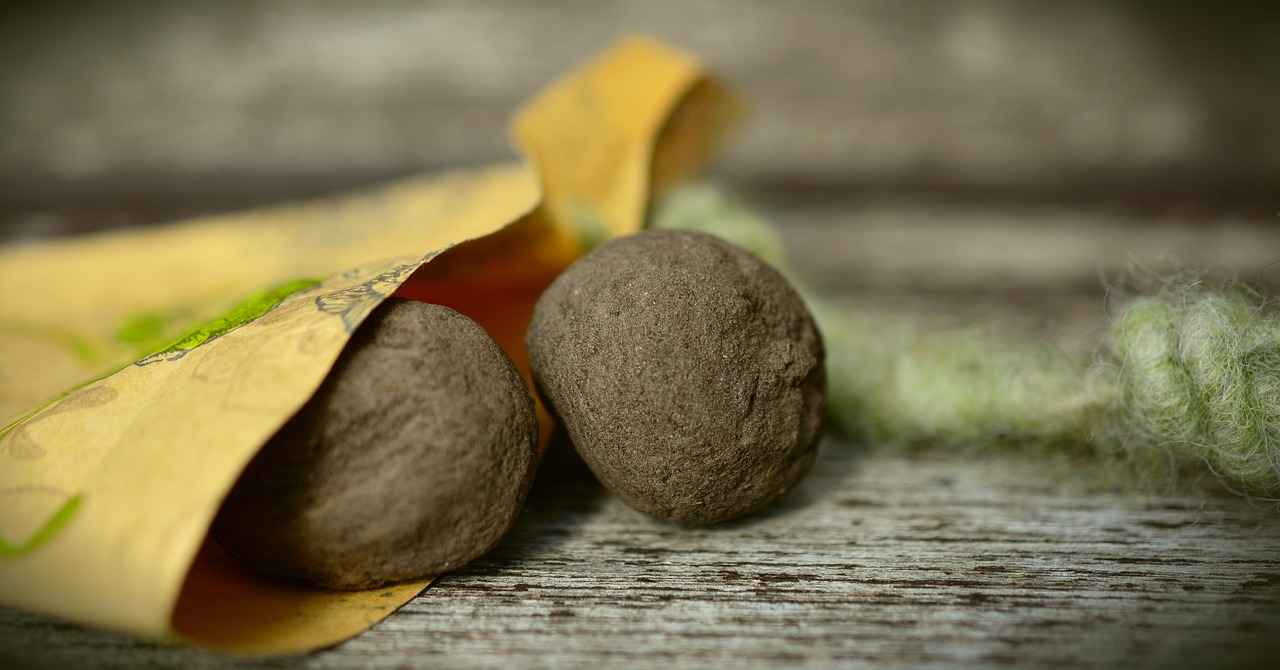
Why Are Chia Seeds Considered a Superfood?
Chia seeds have gained immense popularity in recent years, often being referred to as a superfood. This designation stems from their impressive nutritional profile and the myriad health benefits they offer. In this article, we will delve into the reasons why chia seeds are considered a superfood and explore their unique properties that contribute to overall health and wellness.
Chia seeds are remarkably nutrient-dense, meaning they provide a high amount of essential nutrients relative to their calorie content. A single serving of chia seeds, which is about 28 grams or 2 tablespoons, contains:
- Protein: Approximately 4 grams
- Omega-3 Fatty Acids: Around 5 grams
- Fiber: About 11 grams
- Calcium: 18% of the Recommended Daily Value (DV)
- Magnesium: 24% of the DV
The health benefits of chia seeds are extensive, making them a valuable addition to any diet:
- Heart Health: The omega-3 fatty acids in chia seeds can help reduce inflammation and lower cholesterol levels, promoting cardiovascular health.
- Digestive Health: High in fiber, chia seeds aid in digestion and help maintain regular bowel movements.
- Weight Management: The combination of protein and fiber in chia seeds helps promote feelings of fullness, which can aid in weight control.
- Bone Health: With significant amounts of calcium, magnesium, and phosphorus, chia seeds contribute to bone strength and density.
Unlike many plant-based proteins, chia seeds are considered a complete protein source, meaning they contain all nine essential amino acids that the body cannot produce on its own. This characteristic makes them a fantastic protein option for vegetarians and vegans.
Incorporating chia seeds into your meals is both simple and versatile. Here are some practical ways to enjoy them:
- Add them to smoothies for a nutrient boost.
- Sprinkle them on oatmeal or yogurt for added texture and nutrition.
- Use them in baking recipes, such as muffins or pancakes.
- Make chia pudding by soaking the seeds in milk or a dairy alternative overnight.
Chia seeds are rich in antioxidants, which help combat oxidative stress and inflammation in the body. These antioxidants can protect against cellular damage and reduce the risk of chronic diseases.
While chia seeds are generally safe for most people, there are a few considerations to keep in mind:
- Some individuals may experience digestive discomfort if they consume them in large amounts without sufficient hydration.
- Always introduce chia seeds gradually into your diet to allow your digestive system to adjust.
In conclusion, chia seeds are a powerhouse of nutrients, offering numerous health benefits that justify their superfood status. Their versatility in the kitchen makes them easy to incorporate into various meals, ensuring you can enjoy their health benefits with ease. Whether you are looking to boost your protein intake, enhance your heart health, or simply add more nutrients to your diet, chia seeds are an excellent choice.
How Do Chia Seeds Compare to Other Protein Sources?
Chia seeds have gained popularity as a powerful source of nutrition, especially among those seeking plant-based protein options. When we compare chia seeds to other protein sources, their unique attributes come to light, making them a standout choice for many health-conscious individuals.
Chia seeds are not just another health trend; they are a nutrient-dense superfood that provides a variety of essential nutrients. Unlike many animal-based proteins, chia seeds are entirely plant-based, making them suitable for vegans and vegetarians. A single tablespoon (about 28 grams) of chia seeds contains approximately 2 grams of protein. This may not seem like much, but when combined with their other health benefits, they become a valuable addition to any diet.
One of the most impressive aspects of chia seeds is their ability to offer a complete amino acid profile. This means they contain all nine essential amino acids that the body cannot produce on its own. This feature is particularly important for muscle repair and growth, making chia seeds an excellent option for athletes and fitness enthusiasts.
While animal proteins are often praised for their complete amino acid profiles, chia seeds provide a viable alternative for those looking to reduce animal product consumption. Unlike animal proteins, chia seeds also come with added benefits such as omega-3 fatty acids, fiber, and antioxidants. These nutrients contribute to heart health, digestive health, and overall wellness, making chia seeds a more holistic choice.
When placed alongside other plant-based protein sources like quinoa, lentils, and hemp seeds, chia seeds hold their own. For instance, while quinoa is often touted as a complete protein, it does not pack the same amount of omega-3s or fiber as chia seeds. Additionally, the nutrient density of chia seeds allows them to be easily incorporated into a variety of dishes, enhancing the overall nutritional profile without altering the taste significantly.
- Muscle Growth: The protein in chia seeds supports muscle development and recovery.
- Weight Management: Their high fiber content promotes satiety, which can aid in weight loss.
- Digestive Health: Chia seeds help maintain digestive regularity due to their fiber content.
Adding chia seeds to your meals is simple and versatile. They can be sprinkled on salads, added to smoothies, or mixed into yogurt. One popular way to enjoy chia seeds is by making chia pudding. By soaking chia seeds in your choice of milk or a dairy alternative overnight, you can create a creamy and nutritious snack or breakfast option.
While chia seeds are generally safe for most people, it’s important to consume them in moderation. Some individuals may experience digestive discomfort if they consume too many seeds at once. It is advisable to start with a small amount and gradually increase your intake while ensuring you stay well-hydrated.
The recommended daily intake of chia seeds is about 1-2 tablespoons. This amount provides a significant boost in protein and other nutrients without overwhelming your digestive system. Incorporating this superfood into your diet can lead to numerous health benefits, making it a worthwhile addition to your meals.
Plant-Based vs. Animal-Based Proteins
Understanding the distinctions between plant-based and animal-based proteins is crucial for making informed dietary choices. This article delves into the key differences, benefits, and how both protein types can contribute to a balanced diet.
Plant-based proteins are derived from various sources, including legumes, grains, nuts, and seeds. Unlike animal proteins, which are typically complete, many plant proteins are considered incomplete as they lack one or more essential amino acids. However, by combining different plant sources, individuals can achieve a complete amino acid profile. For example, pairing beans with rice creates a meal rich in all essential amino acids.
Animal-based proteins come from meat, dairy, and eggs and are regarded as complete proteins because they contain all nine essential amino acids required by the body. These proteins are easily absorbed and utilized by the body, making them a popular choice among those seeking to build muscle or maintain overall health.
When comparing both protein types, several factors come into play:
- Amino Acid Profile: Animal proteins provide a complete amino acid profile, while most plant proteins require combinations to achieve completeness.
- Digestibility: Animal proteins are generally more digestible than plant proteins, which can be affected by factors like fiber content.
- Nutritional Benefits: Plant proteins often come with additional nutrients like fiber, vitamins, and antioxidants, which are beneficial for overall health.
There are numerous reasons to consider incorporating more plant-based proteins into your diet:
- Health Benefits: Plant proteins are linked to lower risks of chronic diseases, including heart disease and diabetes.
- Environmental Impact: Plant-based diets tend to have a lower carbon footprint compared to diets rich in animal proteins.
- Ethical Considerations: Many choose plant proteins for ethical reasons, advocating for animal welfare and sustainable farming practices.
Many individuals worry about getting enough protein from plant sources. However, combining different plant proteins can help achieve a complete amino acid profile. For example:
- Rice and Beans: This classic combination provides all essential amino acids.
- Peanut Butter on Whole Grain Bread: A delicious way to combine proteins and enhance nutritional value.
While plant-based proteins offer numerous benefits, they also come with challenges:
- Lower Protein Density: Plant proteins generally contain less protein per serving compared to animal proteins.
- Possible Nutrient Deficiencies: Relying solely on plant proteins may lead to deficiencies in certain nutrients like vitamin B12, iron, and omega-3 fatty acids.
For a balanced diet, consider including both plant and animal-based proteins. This approach allows you to enjoy the benefits of both while minimizing potential drawbacks. Here are some tips:
- Start Your Day with a Protein-Rich Breakfast: Combine eggs with spinach or oatmeal topped with nuts.
- Snack Wisely: Choose snacks that include both protein types, like yogurt with chia seeds.
- Experiment with Recipes: Try new dishes that blend plant and animal proteins for a nutritious meal.
By understanding the differences between plant-based and animal-based proteins, you can make informed choices that align with your dietary needs and values.
Chia Seeds vs. Other Seeds and Nuts
Chia seeds have gained immense popularity in recent years, often hailed as a superfood. Among their numerous benefits, their protein content is particularly noteworthy. In this section, we will explore how chia seeds compare to other seeds and nuts, highlighting their unique advantages and nutritional profile.
When examining the protein content of various seeds, chia seeds emerge as a notable contender. A tablespoon of chia seeds contains approximately 2 grams of protein. In comparison, flaxseeds offer about 1.5 grams, while pumpkin seeds provide around 7 grams per ounce. However, chia seeds are unique in their ability to provide a complete protein source, meaning they contain all nine essential amino acids required for human health.
Chia seeds are not just about protein; they boast a remarkable balance of nutrients. They are rich in omega-3 fatty acids, fiber, and antioxidants, which contribute to their health benefits. This combination of nutrients is often lacking in other seeds and nuts, making chia seeds a superior choice for those looking to enhance their diet.
Nuts like almonds and walnuts are often considered healthy snacks, providing healthy fats and protein. For instance, almonds contain about 6 grams of protein per ounce, which is higher than chia seeds. However, chia seeds offer a unique advantage with their high fiber content, providing about 11 grams of fiber per ounce, compared to almonds’ 3.5 grams. This high fiber content aids in digestion and promotes a feeling of fullness, making chia seeds a fantastic option for weight management.
One of the significant advantages of chia seeds is their versatility. They can be easily incorporated into various dishes, from smoothies to baked goods. Unlike many nuts that may require careful portion control due to their calorie density, chia seeds can be consumed in larger quantities without significantly impacting caloric intake. This makes them an ideal choice for those looking to increase their protein intake without excessive calories.
- Muscle Repair and Growth: The protein in chia seeds supports muscle repair and growth, making them an excellent post-workout snack.
- Weight Management: High fiber content promotes satiety, helping control hunger and aiding in weight management.
- Heart Health: Omega-3 fatty acids contribute to cardiovascular health, lowering inflammation and improving cholesterol levels.
Adding chia seeds to your meals is simple and delicious. Here are some effective ways to enjoy them:
- Smoothies: Blend chia seeds into your favorite smoothie for an added protein boost.
- Overnight Oats: Mix chia seeds into overnight oats for a nutritious breakfast.
- Baking: Substitute a portion of flour with ground chia seeds in baking recipes.
While chia seeds are generally safe for most people, moderation is key. Some individuals may experience digestive discomfort if they consume too many chia seeds at once. It’s advisable to start with a small amount and gradually increase your intake while ensuring adequate hydration.
In summary, chia seeds stand out in the realm of seeds and nuts due to their impressive protein content and unique nutrient profile. They offer a versatile and healthful addition to any diet, making them a valuable component for anyone looking to improve their nutrition.
What Are the Health Benefits of Protein in Chia Seeds?
Chia seeds are often hailed as a nutritional powerhouse, and one of their standout features is their protein content. As a plant-based source of protein, chia seeds offer numerous health benefits that can enhance overall wellness. This article delves into the various health benefits associated with the protein found in chia seeds, highlighting why they are a valuable addition to your diet.
The protein in chia seeds plays a crucial role in muscle growth and repair. Each tablespoon of chia seeds contains approximately 2 grams of protein, which contributes to the daily protein intake needed for muscle maintenance. For those engaging in regular exercise or strength training, incorporating chia seeds can help in the recovery process and muscle synthesis.
One of the significant benefits of chia seeds is their ability to assist in weight management. The protein content, combined with their high fiber content, promotes a feeling of fullness and satiety. This means that incorporating chia seeds into meals can help curb appetite and reduce overall calorie intake, making it easier to maintain a healthy weight.
Chia seeds are unique among plant-based proteins because they provide a complete amino acid profile. This means they contain all nine essential amino acids that the body cannot produce on its own. For vegetarians and vegans, chia seeds offer an excellent way to ensure they are meeting their protein needs without relying solely on animal products.
The protein and fiber in chia seeds work together to support digestive health. The soluble fiber found in chia seeds absorbs water and forms a gel-like substance in the stomach, which can aid in digestion and promote regular bowel movements. This can be particularly beneficial for those struggling with digestive issues.
Another noteworthy benefit of chia seeds is their potential to help regulate blood sugar levels. The combination of protein, fiber, and healthy fats in chia seeds can slow down the absorption of sugar into the bloodstream, preventing spikes in blood sugar levels. This makes chia seeds a smart choice for individuals looking to manage their blood sugar, particularly those with diabetes.
Incorporating chia seeds into your daily meals is simple and versatile. They can be added to smoothies, oatmeal, baked goods, or even used to make chia pudding. Here are some easy ways to enjoy chia seeds:
- Chia Seed Pudding: Soak chia seeds in your choice of milk or dairy alternative overnight for a delicious and nutritious snack.
- Smoothies: Blend chia seeds into your favorite smoothie for an added protein boost.
- Baked Goods: Add chia seeds to muffins, breads, or pancakes for enhanced nutrition.
While chia seeds are generally safe for most people, it’s essential to consume them in moderation. Some individuals may experience digestive discomfort if they consume too many chia seeds at once, especially without adequate hydration. It’s advisable to start with small amounts and gradually increase intake.
To enjoy the health benefits of chia seeds without adverse effects, it is recommended to consume about 1-2 tablespoons daily. This amount provides sufficient protein and nutrients while minimizing the risk of digestive issues.
In summary, the protein in chia seeds offers numerous health benefits, from supporting muscle growth to aiding in weight management and promoting digestive health. By incorporating chia seeds into your diet, you can enjoy these advantages while enhancing your overall nutrition.
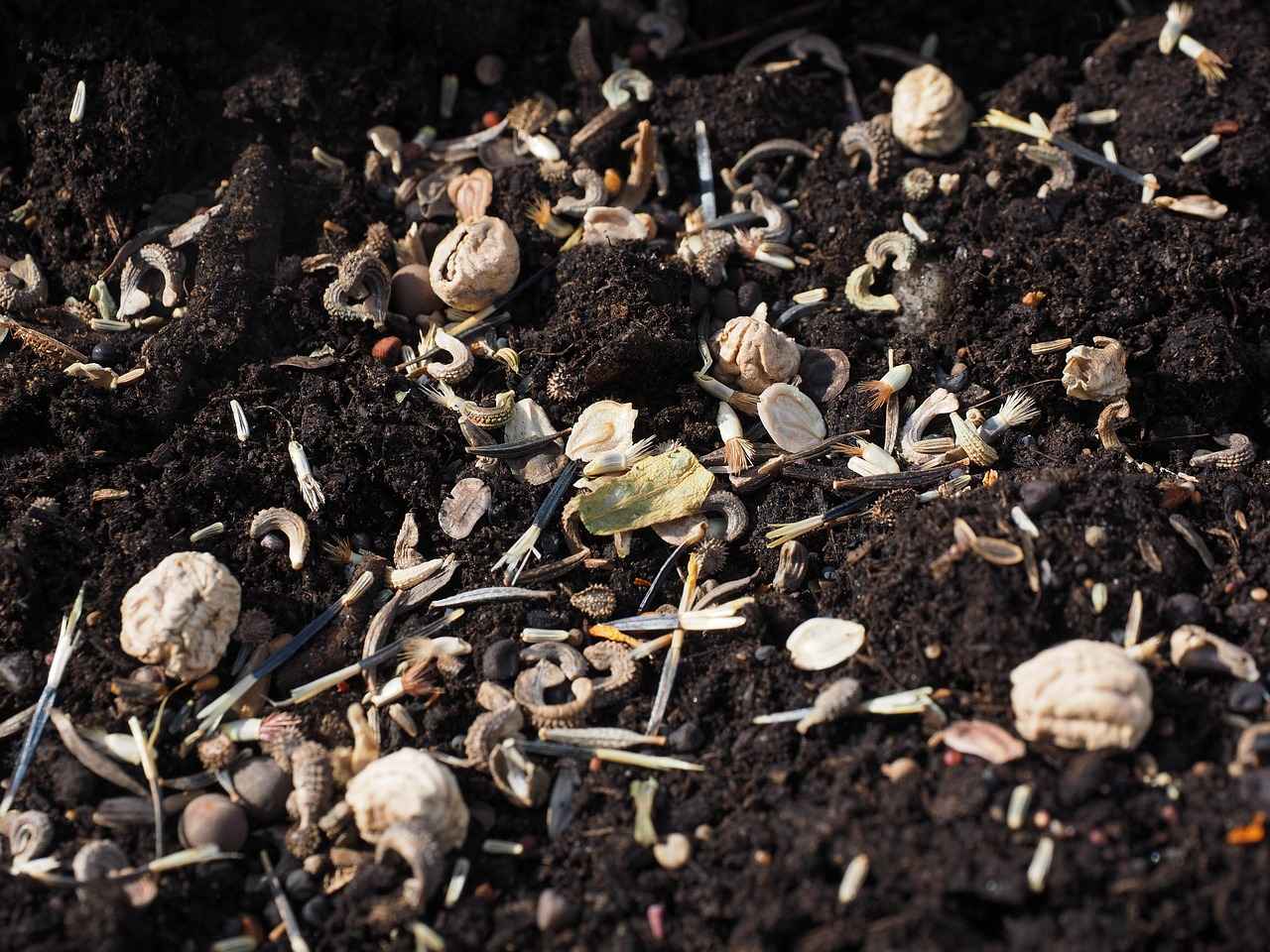
How Can You Incorporate Chia Seeds into Your Diet?
Incorporating chia seeds into your daily meals is not only simple but also incredibly versatile. These tiny seeds are packed with nutrients and can enhance the flavor and nutritional value of a variety of dishes. Here are some creative ways to include chia seeds in your diet:
- Smoothies: Add a tablespoon of chia seeds to your morning smoothie for an extra boost of protein and fiber. They blend seamlessly and can help you feel full longer.
- Oatmeal: Stir chia seeds into your oatmeal before cooking or sprinkle them on top as a crunchy garnish. They absorb liquid and create a delightful texture.
- Baked Goods: Incorporate chia seeds into muffins, pancakes, or bread recipes. They can replace eggs in vegan baking when mixed with water, providing moisture and binding properties.
- Chia Pudding: Create a delicious chia pudding by mixing chia seeds with milk (dairy or plant-based) and letting it sit overnight. This results in a creamy, nutritious snack or breakfast option.
- Salads: Sprinkle chia seeds on salads for added crunch and nutrition. They can enhance the overall flavor profile while providing essential nutrients.
- Soups and Stews: Add chia seeds to soups and stews as a thickening agent. They absorb liquid and can make your meals heartier.
- Energy Bars: Make homemade energy bars by combining chia seeds with nuts, dried fruits, and oats. This is a great snack for on-the-go energy.
Chia seeds are not only nutritious but also offer a unique texture that can elevate a variety of meals. They are rich in omega-3 fatty acids, antioxidants, and fiber, making them a fantastic addition to a balanced diet.
One of the most appealing aspects of chia seeds is their ability to absorb liquid and form a gel-like consistency. This property makes them ideal for creating puddings and thickening smoothies. When you soak chia seeds in liquid, they expand and become gelatinous, which can enhance the mouthfeel of your dishes.
Moreover, chia seeds are a great source of protein, which is essential for muscle repair and overall health. By incorporating them into your meals, you can easily increase your protein intake without relying solely on animal products. This is particularly beneficial for vegetarians and vegans seeking plant-based protein sources.
When adding chia seeds to your diet, it’s important to start with small amounts, especially if you are not used to consuming high-fiber foods. Gradually increase your intake to allow your digestive system to adjust. A recommended daily intake is around 1-2 tablespoons, which can provide numerous health benefits without causing discomfort.
In summary, chia seeds are a nutrient-dense superfood that can be effortlessly integrated into your daily meals. Their versatility makes them suitable for a wide range of recipes, ensuring that you can enjoy their health benefits in various ways. Whether you choose to blend them into smoothies, bake them into goods, or create a delicious pudding, chia seeds are an excellent choice for enhancing your diet.
Recipes Featuring Chia Seeds
Chia seeds have gained immense popularity in recent years, thanks to their versatility and impressive nutritional profile. As a superfood, they can be easily incorporated into a variety of dishes, enhancing both flavor and health benefits. Here are some delicious and creative recipes that showcase chia seeds as a primary ingredient.
Chia seed pudding is a simple yet satisfying dish that serves as a perfect breakfast or snack. To prepare:
- Ingredients: 1/4 cup chia seeds, 1 cup almond milk (or any milk of choice), 1 tablespoon honey or maple syrup, and your choice of toppings (fruits, nuts, or granola).
- Instructions: In a bowl, mix chia seeds and almond milk. Stir well to avoid clumps. Add sweetener and mix again. Refrigerate for at least 4 hours or overnight. Top with your favorite ingredients before serving.
This refreshing smoothie is packed with nutrients, making it an excellent option for breakfast or post-workout recovery. Here’s how to make it:
- Ingredients: 1 banana, 1 cup spinach, 1 tablespoon chia seeds, 1 cup coconut water, and ice cubes.
- Instructions: Blend all ingredients until smooth. Serve immediately for a refreshing and energizing drink.
Add a nutritious twist to your salads with a homemade chia seed dressing:
- Ingredients: 2 tablespoons chia seeds, 1/4 cup olive oil, 2 tablespoons apple cider vinegar, 1 teaspoon mustard, salt, and pepper to taste.
- Instructions: Whisk all ingredients together until well combined. Let it sit for 10 minutes to allow the chia seeds to expand, then drizzle over your favorite salad.
These homemade energy bars are perfect for a quick snack on the go:
- Ingredients: 1 cup oats, 1/4 cup chia seeds, 1/2 cup nut butter, 1/4 cup honey, and 1/2 cup dried fruits or chocolate chips.
- Instructions: Mix all ingredients in a bowl. Press the mixture into a lined baking dish and refrigerate for 2 hours. Cut into bars and enjoy!
This easy-to-make jam is a fantastic alternative to store-bought versions, packed with nutrients and free from preservatives:
- Ingredients: 2 cups of fresh or frozen fruit (like strawberries or blueberries), 2 tablespoons chia seeds, and 1-2 tablespoons honey or agave syrup.
- Instructions: In a saucepan, heat the fruit until it breaks down. Stir in chia seeds and sweetener. Allow it to cool and thicken before storing in a jar.
Incorporating chia seeds into your meals not only boosts their nutritional value but also adds a delightful texture. With these recipes, you can easily enjoy the numerous health benefits of chia seeds while indulging in tasty dishes.
Chia Seed Pudding: A Quick and Healthy Snack
Chia seed pudding has gained significant popularity as a nutritious snack that is both quick to prepare and satisfying. This delightful treat is made by soaking chia seeds in milk or a dairy alternative, resulting in a creamy texture that is not only enjoyable but also packed with essential nutrients.
Chia seeds are a powerhouse of nutrients. They are rich in fiber, omega-3 fatty acids, and protein, making them an excellent addition to any diet. When transformed into pudding, they provide a delightful way to consume these benefits. A typical serving of chia seed pudding can contain up to 6 grams of protein and a significant amount of dietary fiber, promoting feelings of fullness and aiding in digestion.
Creating chia seed pudding is incredibly simple and requires minimal ingredients. Here’s a basic recipe:
- Ingredients:
- 1/4 cup chia seeds
- 1 cup milk or dairy alternative (like almond or coconut milk)
- 1-2 tablespoons sweetener (like honey or maple syrup)
- 1/2 teaspoon vanilla extract (optional)
- Instructions:
- In a bowl, mix the chia seeds with the milk and stir well.
- Add the sweetener and vanilla extract, if using, and mix again.
- Let it sit for about 5 minutes, then stir again to prevent clumping.
- Cover and refrigerate for at least 2 hours or overnight for best results.
Chia seed pudding is incredibly versatile. Here are some flavor variations to consider:
- Chocolate Chia Pudding: Add cocoa powder and a sweetener for a chocolatey treat.
- Fruit-Infused: Mix in pureed fruits like mango or berries for added flavor and nutrients.
- Spiced Chia Pudding: Incorporate spices like cinnamon or nutmeg for a warm flavor profile.
Not only is chia seed pudding a quick snack, but it also offers several health benefits:
- Supports weight management by promoting satiety.
- Provides a source of plant-based protein for muscle repair.
- Rich in antioxidants that help combat oxidative stress.
Whether you are following a vegan, gluten-free, or paleo diet, chia seed pudding can be easily incorporated. Its adaptability makes it suitable for breakfast, a midday snack, or even a dessert.
While chia seeds are generally safe for most people, it is crucial to consume them in moderation. Due to their high fiber content, it is advisable to start with small amounts and gradually increase your intake. Additionally, always ensure to drink plenty of water to aid digestion.
In conclusion, chia seed pudding is not just a quick and healthy snack but also a delicious way to incorporate nutrient-dense chia seeds into your diet. With endless flavor possibilities and health benefits, it’s a treat that can satisfy your cravings while nourishing your body.

Are There Any Risks Associated with Chia Seeds?
Chia seeds are often hailed as a superfood due to their numerous health benefits, but like any food, they come with certain risks when consumed inappropriately. Understanding these risks is crucial for anyone looking to incorporate chia seeds into their diet effectively. Below, we delve into the potential concerns associated with chia seeds and how to mitigate them.
While chia seeds are generally safe for most individuals, consuming them in excessive amounts can lead to digestive issues. The high fiber content in chia seeds, approximately 11 grams per ounce, can cause discomfort if introduced too quickly into the diet. Symptoms may include bloating, gas, or even constipation.
To minimize these digestive risks, it is essential to stay hydrated when consuming chia seeds. They absorb up to 12 times their weight in water, which means that without adequate fluid intake, they can expand in the digestive tract and lead to discomfort. Gradually introducing chia seeds into your diet can also help your digestive system adjust.
Some individuals may experience allergic reactions to chia seeds, although this is relatively rare. Symptoms can vary from mild to severe and may include itching, swelling, or difficulty breathing. If you suspect you have an allergy to chia seeds, it is advisable to consult a healthcare professional before including them in your diet.
To enjoy the health benefits of chia seeds without experiencing adverse effects, it is recommended to consume 1-2 tablespoons daily. This amount provides a sufficient dose of protein, omega-3 fatty acids, and fiber without overwhelming your digestive system. Monitoring your body’s response when increasing your intake is essential for long-term health.
Chia seeds can have an impact on certain medications, particularly those that affect blood sugar levels or blood pressure. Their high fiber content may also interfere with the absorption of some medications. If you are on medication or have existing health conditions, it is crucial to discuss chia seed consumption with your healthcare provider.
- Start Small: Begin with a small amount, such as 1 teaspoon, and gradually increase to 1-2 tablespoons.
- Stay Hydrated: Ensure you drink plenty of water throughout the day, especially when consuming chia seeds.
- Mix with Liquids: Soak chia seeds in water, juice, or milk before consumption to prevent them from expanding in your stomach.
- Consult a Doctor: If you have any pre-existing health conditions or concerns, seek advice from a healthcare professional.
In conclusion, while chia seeds are a nutritious addition to many diets, it is essential to be mindful of the potential risks associated with their consumption. By understanding how to incorporate them safely and being aware of individual health needs, you can enjoy the myriad benefits that chia seeds have to offer without experiencing discomfort.
Potential Allergies and Sensitivities
When considering adding chia seeds to your diet, it is crucial to be aware of that some individuals may experience. While chia seeds are celebrated for their numerous health benefits, including being a rich source of protein, omega-3 fatty acids, and fiber, they are not suitable for everyone.
Chia seeds are tiny black or white seeds derived from the Salvia hispanica plant. They have gained popularity as a superfood due to their impressive nutritional profile. However, as with any food, it’s essential to recognize that some people may develop adverse reactions.
Although rare, allergic reactions to chia seeds can occur. Symptoms may include:
- Skin Reactions: Hives, itching, or rashes.
- Gastrointestinal Issues: Nausea, vomiting, or diarrhea.
- Respiratory Problems: Difficulty breathing or wheezing.
If you experience any of these symptoms after consuming chia seeds, it is advisable to consult a healthcare professional for further evaluation.
Individuals with a history of allergies to other seeds, such as flaxseeds or sesame seeds, may be at a higher risk for developing an allergy to chia seeds. Additionally, those with autoimmune conditions or digestive disorders may also experience sensitivities. It’s important to approach chia seeds with caution if you fall into these categories.
To minimize the risk of adverse reactions, consider the following tips:
- Start Small: Begin with a small amount, such as half a teaspoon, and gradually increase your intake.
- Stay Hydrated: Chia seeds absorb a significant amount of water, so it’s essential to drink plenty of fluids to aid digestion.
- Monitor Your Body’s Response: Keep track of how your body reacts after consuming chia seeds to identify any potential sensitivities.
If you have any concerns about introducing chia seeds into your diet, especially if you have a history of allergies or sensitivities, it is wise to consult with a healthcare professional. They can provide personalized advice based on your health history and dietary needs.
In summary, while chia seeds offer numerous health benefits, it is essential to be aware of potential allergies and sensitivities. Starting with small amounts, staying hydrated, and consulting with healthcare professionals can help ensure a safe and enjoyable experience with this nutritious superfood.
Recommended Daily Intake of Chia Seeds
When it comes to incorporating chia seeds into your diet, understanding the recommended daily intake is crucial for maximizing their health benefits while minimizing potential side effects. Chia seeds are a powerhouse of nutrients, rich in protein, omega-3 fatty acids, and fiber, making them an excellent addition to a balanced diet.
To enjoy the numerous benefits of chia seeds without overwhelming your digestive system, it is essential to adhere to a recommended daily intake. Consuming 1-2 tablespoons of chia seeds daily is generally advised. This amount not only provides adequate protein and essential nutrients but also helps maintain digestive health.
While chia seeds are beneficial, consuming them in excessive amounts can lead to digestive discomfort. The high fiber content can cause bloating, gas, or even constipation if not paired with sufficient hydration. Therefore, starting with a smaller amount and gradually increasing your intake can help your body adjust.
- Breakfast Boost: Add chia seeds to your morning smoothie or oatmeal for a nutritious start.
- Baking Ingredient: Incorporate chia seeds into baked goods like muffins and bread for added texture and nutrition.
- Healthy Snacks: Create chia seed pudding by soaking them in almond milk or yogurt overnight, then top with fruits.
- Salad Enhancer: Sprinkle chia seeds over salads for a crunchy texture and nutrient boost.
Individuals with certain health conditions, such as irritable bowel syndrome (IBS) or those who are pregnant, should consult a healthcare professional regarding their chia seed consumption. It’s essential to ensure that their intake aligns with their health needs.
Chia seeds are not just rich in protein; they also offer a variety of nutrients, including:
| Nutrient | Amount per 1 Tablespoon (28g) |
|---|---|
| Protein | 2g |
| Omega-3 Fatty Acids | 5g |
| Fiber | 5g |
| Calcium | 76mg |
| Iron | 1mg |
The protein and nutrients in chia seeds can contribute to various health benefits, including:
- Muscle Repair: The protein content aids in muscle recovery and growth.
- Weight Management: High fiber content promotes feelings of fullness, helping to control appetite.
- Heart Health: Omega-3 fatty acids support cardiovascular health.
In summary, consuming 1-2 tablespoons of chia seeds daily can be a beneficial addition to your diet. This amount allows you to reap the nutritional rewards while avoiding potential digestive issues. Always remember to stay hydrated and listen to your body’s needs as you incorporate these tiny yet mighty seeds into your meals.
Frequently Asked Questions
- How much protein is in one tablespoon of chia seeds?
One tablespoon of chia seeds contains approximately 2 grams of protein, making them a fantastic plant-based protein source for anyone looking to boost their intake.
- Can chia seeds help with weight management?
Absolutely! The protein and fiber in chia seeds promote a feeling of fullness, which can help control appetite and support weight management efforts.
- Are there any side effects of consuming chia seeds?
While chia seeds are generally safe, consuming them in large amounts may cause digestive discomfort. It’s best to start with 1-2 tablespoons and drink plenty of water.
- How can I add chia seeds to my diet?
Chia seeds are incredibly versatile! You can sprinkle them on oatmeal, blend them into smoothies, or prepare a delicious chia seed pudding for a nutritious snack.
- Do chia seeds have any allergens?
Some individuals may have allergies or sensitivities to chia seeds. If you experience any adverse reactions, it’s wise to consult a healthcare professional.




